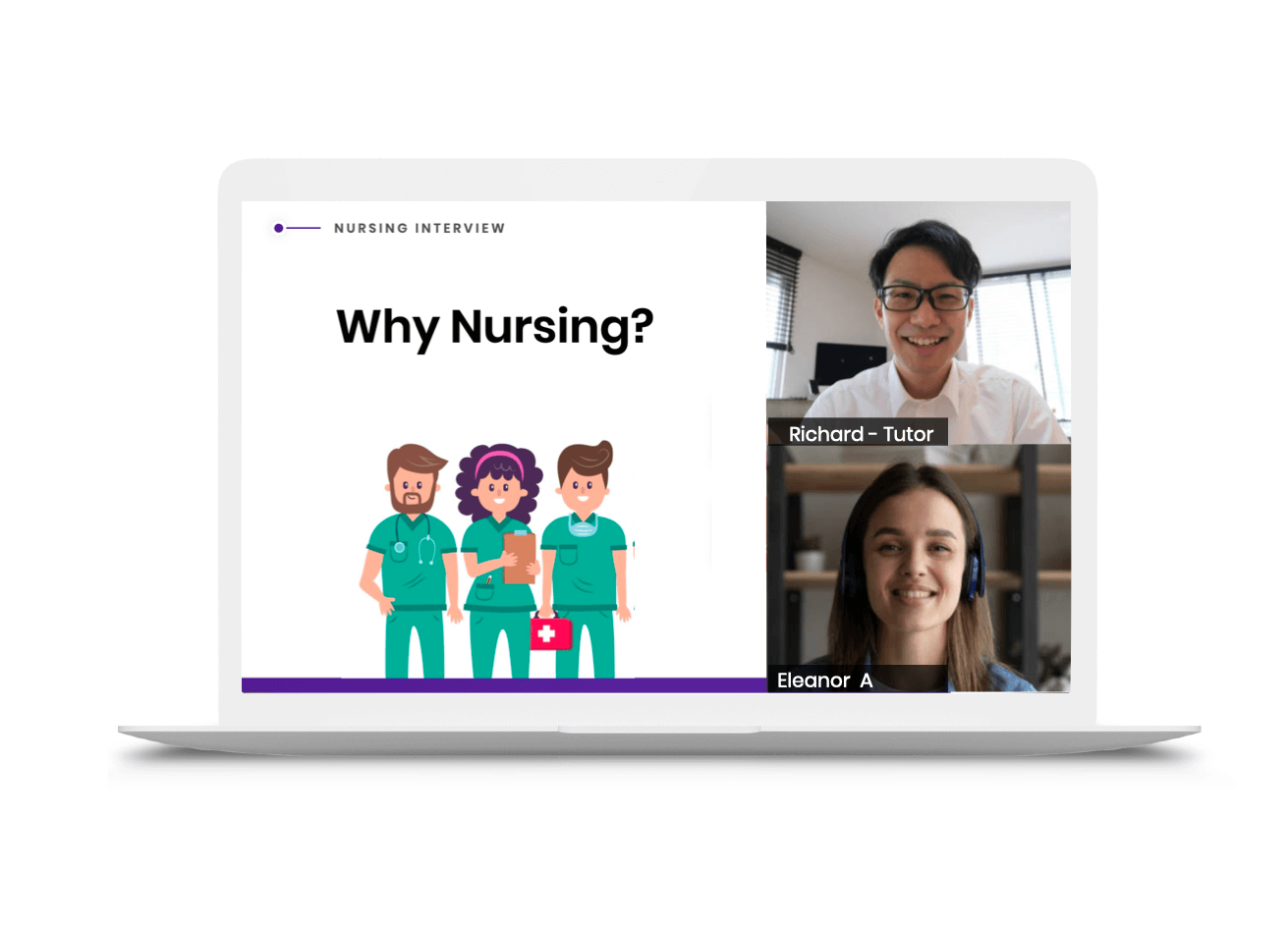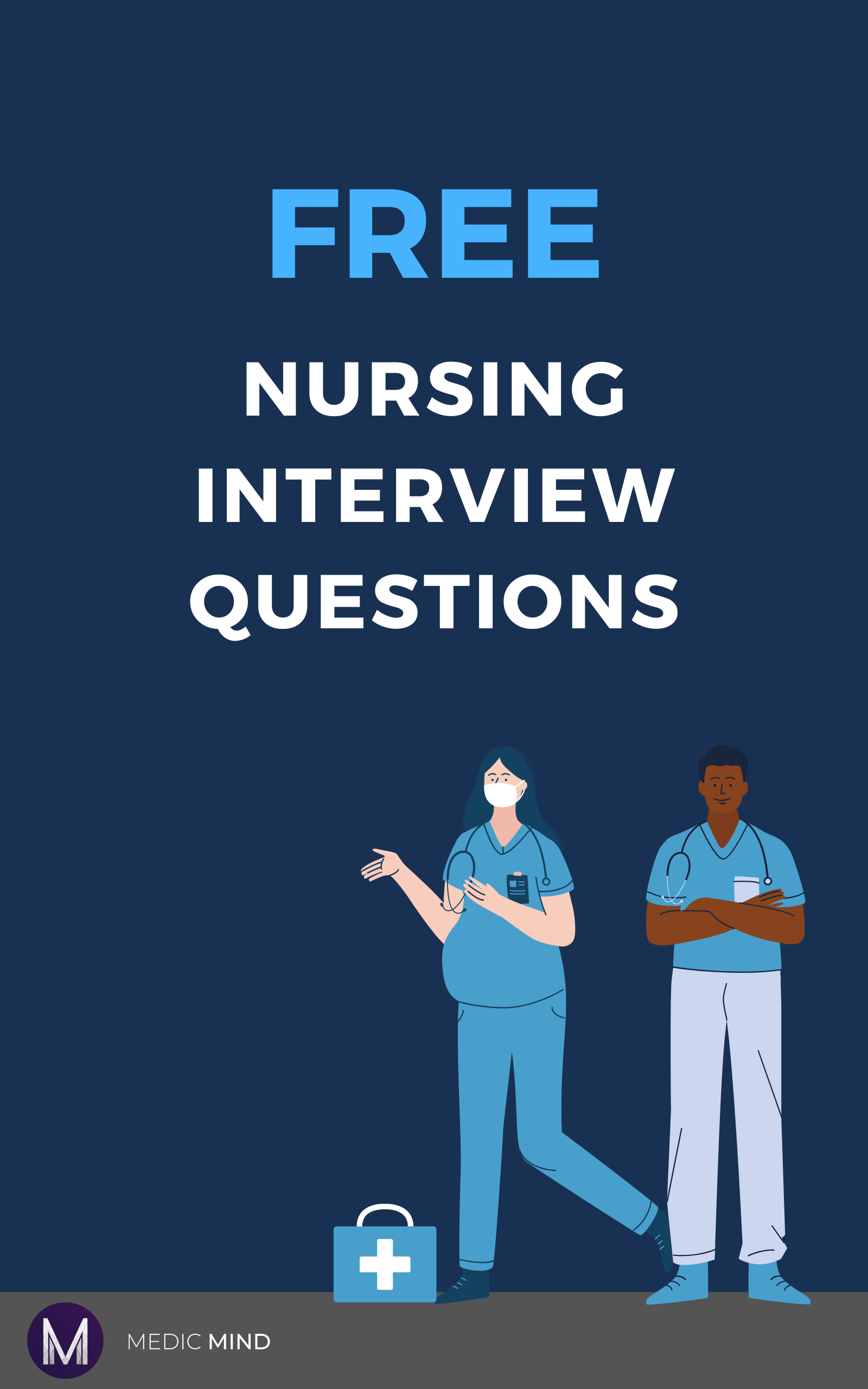Loading...


10 Tips for the Nursing Interview
When applying to study for a nursing qualification, the admissions process will include a nursing interview. The idea of an interview can make many people feel anxious, but there are ways you can feel better prepared for the process ahead. Understand that this interview is your chance to make an impression and separate you as an individual from other applicants. This is your chance to show why YOU deserve a place on this course.
1. Logistics and Practicality
When attending your interview, do everything you can to arrive punctually and calmly. Ensure you know your interview’s date, time, campus and room well in advance. Arrange how you will get to the interview in good time, including a plan B if your original plan goes awry.

Know where in the city the campus is and ensure you have the right building. Often a university will have multiple buildings around the city. Knowing where this is and where parking is available will reduce stress on the day. Being prepared and having your interview outfit put together, cleaned and ironed will go a long way in making you feel the part and showing you are professional and ready. Bring any qualifications, letters of recommendation or additional training and accolades with you in a portfolio. Having all these to hand can be useful if interviewers want to see evidence of work experience or academic achievements.
2. Know Your Strengths
Before your interview, consider the attributes you want to present. It may not always feel like the questions lend themselves to showing your particular skills, but often questions can be answered in a way that can showcase your talents. If you feel you are attentive or compassionate, include that when you talk about work experience or your drive to be a nurse. Be sure of what you want the interviewers to see in you, and think of examples of when you used these attributes. Just saying that you are a compassionate person doesn’t prove the fact. Consider a time you used the talent, be it punctuality, organisation, compassion or communications, and bring that up in your interview at an appropriate point.
3. Give Examples
Always have a practical or academic experience to link your answers to. As previously stated, saying you have a positive attribute doesn’t make it a fact. For example, if you want to show you had very positive feedback at a work experience, reference a letter of recommendation or praise in your portfolio. Give an example of a time you gave great care to support the claim you have good communication skills and don’t feel you are being vulgar by bragging. Your interview is the time to show off your strengths; you want to leave feeling you showed the interviewers your best.
Providing positive attributes, experiences or times when you exceeded is encouraged, but always try to strengthen the claim with a bit of context and evidence.
4. Be Truthful
The interviewers will have interviewed many applicants before yourself; an extremely common question is, “why do you want to become a nurse?” think of your response carefully. Many applicants will talk about how nursing is a calling or a vocation, and while their passion may be very real, the response is also very common. Think of your truthful answer, why do YOU want to be a nurse? Nursing being your calling is perfectly valid but strengthen this with either a personal experience to show you understand the role or a secondary reason. Highlight your personal attributes and why you feel nursing fits you as an individual. Don’t be afraid to highlight the practical positives of nursing, such as shift flexibility, progression options or the broadness of job prospects. Think of something that will motivate you to be a nurse and stay in nursing for a long time.

5. Understand Nursing
Understand the history of nursing in the UK and the development of the role and responsibilities in today’s NHS. Understand the 6 C’s and when and why they were implemented. Additionally, research the history of the Nursing and Midwifery Council, its role in nursing and how the code relates to and shapes nursing practice.
6. Understand Current Healthcare
While researching nursing, develop your knowledge of healthcare as an organisation. Know the NHS goals and values and research if there are any specific values of the local trust to the university. Be aware of current health initiatives and any plans or focuses the NHS has at the time of your interview. Additionally, research recent health advancements in an area that interests you. If your interviewers ask what area you are interested in, it’ll show great initiative that you have current knowledge of the field.
7. Remember the Academic
Placements and practical experiences are incredibly important throughout any nursing qualification. However, academia presents a new challenge to overcome and accounts for much of your success throughout your studies. The interviewer won’t expect you to automatically have the necessary research, reference or essay writing skills completely developed. Instead, show you have engaged well during past study and are willing to develop these academic skills. Providing evidence for ongoing learning or foundation courses will show you have the drive to develop your skills and have experience with classroom-based learning. Equally, showing you have read sources about nursing practice and healthcare advances and initiatives shows you can research and comprehend information well.
8. Know the City
Have an understanding of the city you are interviewing in. Knowing the city’s history, culture and specialities of its local trust will show you have an interest in studying specifically at that school. Ideally, research local health initiatives and understand some of the region’s health inequalities or areas for improvement. Being local to the area is by no means a disadvantage; show you know the area and its health needs well. You have the advantage of knowing how to talk and communicate in a more regional way, which can put many service users at ease.
9. All Experience is Valid
While going to the interview with a lot of previous healthcare experience may be advantageous, know any experience can be very valid. Nursing requires organisation, communication, great service, attention to detail and teamwork. Talents that are also required in many other roles. If you feel light on healthcare-specific experience, remember your vocational or volunteering experiences should also be referenced. You may not have experience with a distraught relative, but you likely have experience with an unhappy customer or client where you can showcase your compassion, care and communication.
10. Know Your Disadvantages
Prepare answers for difficult questions, things like identifying your weaknesses or discussing nursing difficulties. The interviewer doesn’t want you to shy away from these questions. Equally, they want a truthful answer; being a perfectionist is not a weakness. Highlight and discuss what you may need to develop; if you are unsure about the academic aspect, discuss this in a way where you focus on how you would like to develop. Equally, identify an area of nursing you may find difficult and show how you may develop this or work towards a better outcome.
FAQs
This will vary from university to university. All the information regarding the interview process should be included in correspondence about the day. If you need clarification, contact the admissions office for further information.
Again, this can be changeable. Some universities will ask you to complete short maths and English tests during your interview day. Come prepared with any listed materials or equipment.
There are many key moments in the development of modern nursing and its role in healthcare. Often the 6 Cs, The Francis Report and the NHS values are good places to start. Knowing when these things were implemented, the reasons for their development, and how they affect nursing practice is helpful.
Understanding how the course you are applying for is graded, and split is important. Some universities may offer different speciality-based syllabuses that interest you specifically. Highlighting this will show you understand the course and have the drive to study at that establishment. Equally, some courses grade practical placements as well as academic work, and others don’t. Choose a course that works best for you, and show you have considered this in the interview.
The majority of universities will interview candidates on a 1-1 basis. Some establishments also use group interviews, as these can show how you interact and communicate with your peers. Others use mini-multiple interviews where, like speed dating; there are multiple interviewers who you interact with for a short period. Correspondence from the university should indicate what to expect.
Read the latest related blogs:
Related links
MMI interview preparation with our live interactive day and comprehensive feedback
Personalised 1-1 lessons, tailored to your interview preparation
Covering 8 interview topics, with model answers, live MMI analysis and hot topics





Was this article helpful?
Still got a question? Leave a comment
Leave a comment